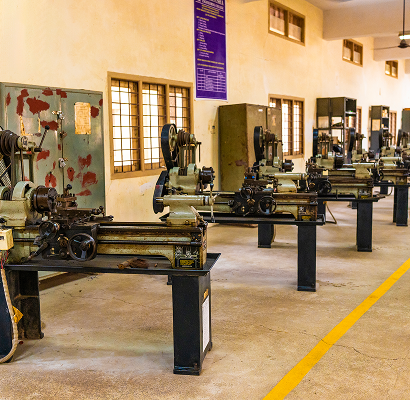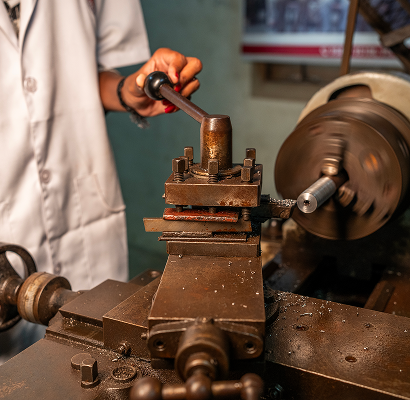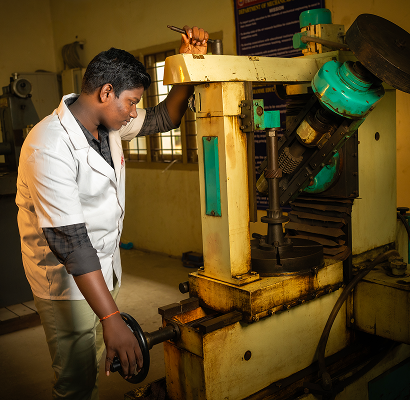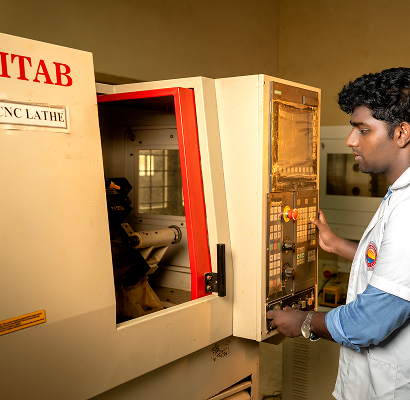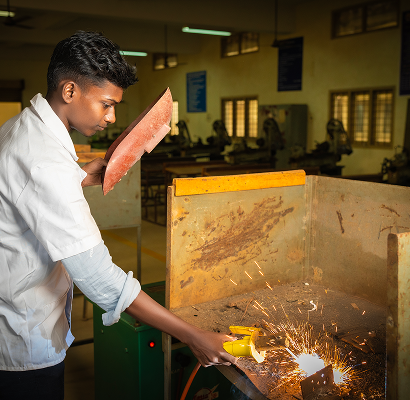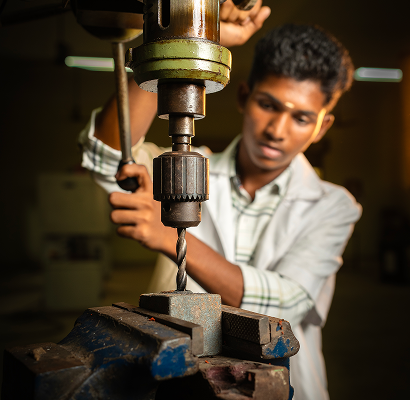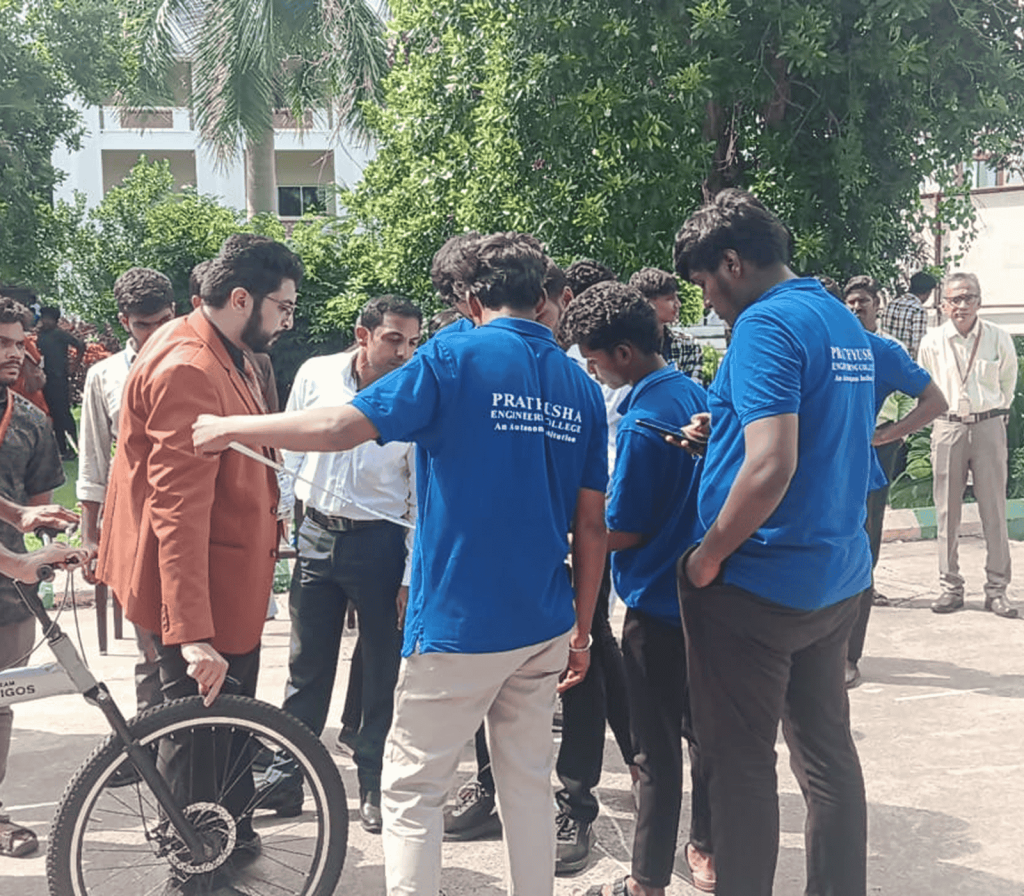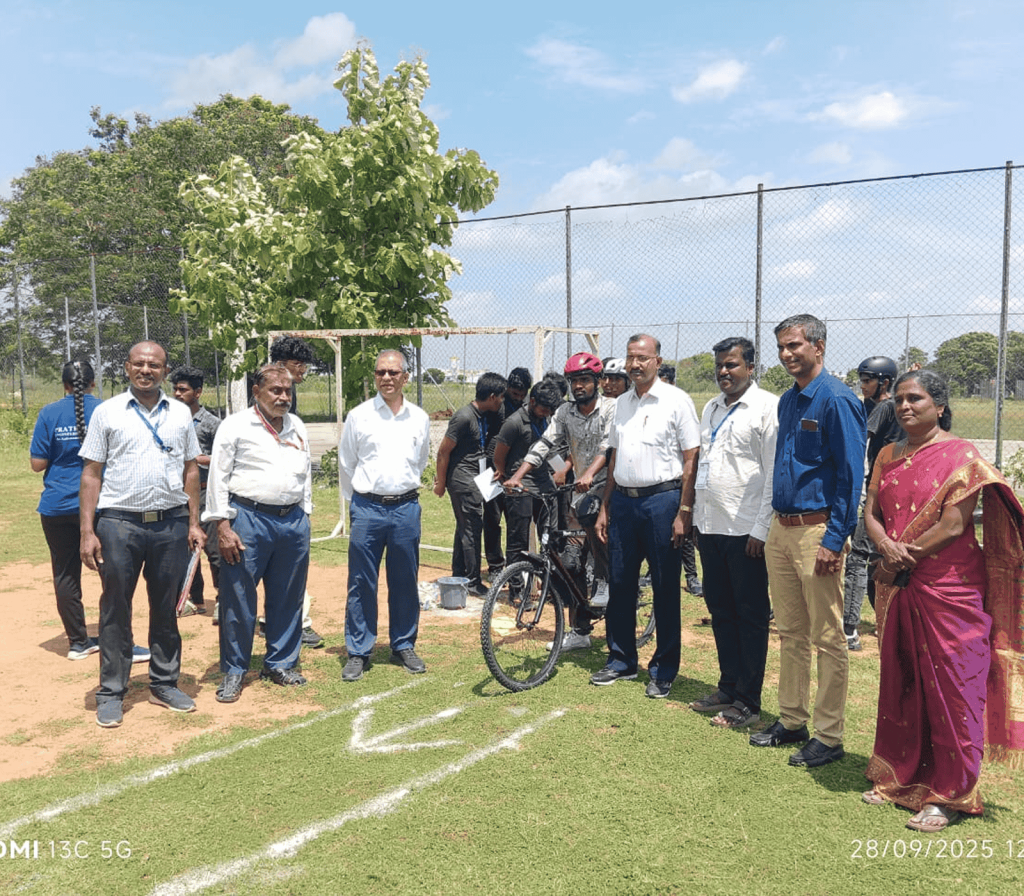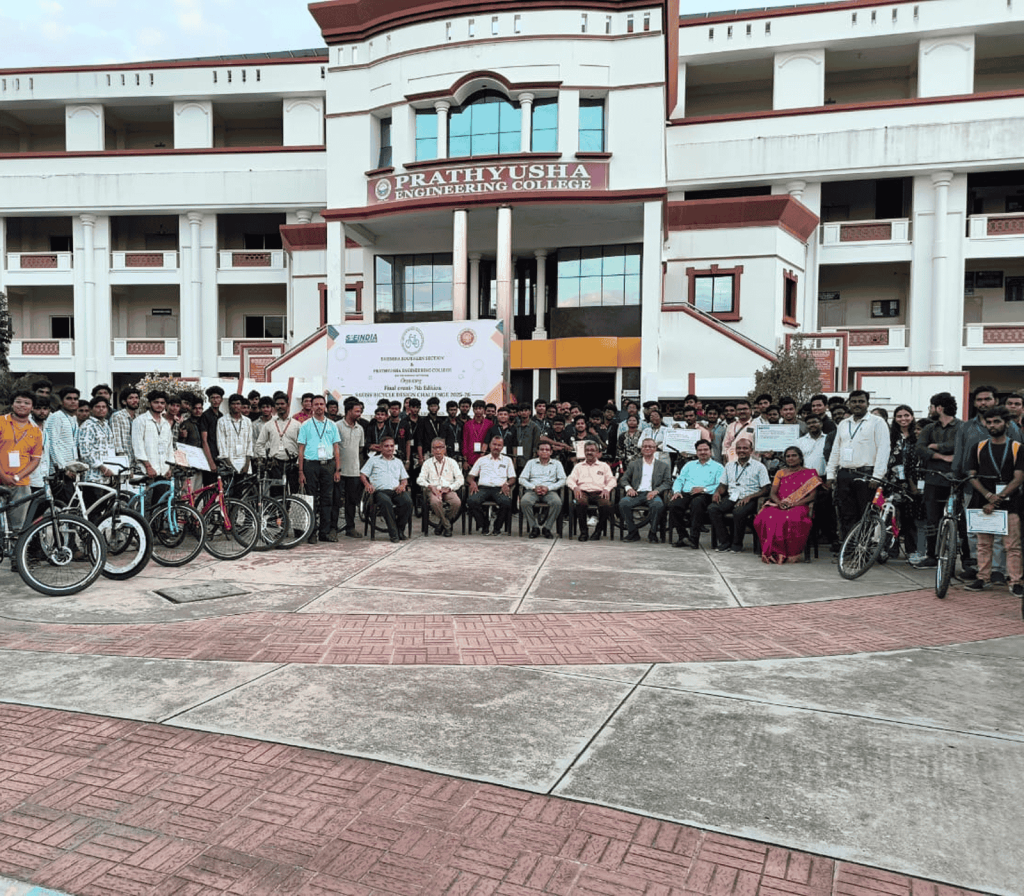- Result : 2023-2024 Percentage : 85%
- Result : 2022-2023 Percentage : 80%
- Result : 2021-2022 Percentage : 88%
- Result : 2020-2021 Percentage : 75%
- Result : 2018-2019 Percentage : 76%
- Result : 2017-2018 Percentage : 82.75%
- Result : 2016-2017 Percentage : 82.85%
- Result : 2015-2016 Percentage : 67.07%
- Result : 2023-2024 Percentage : 85%
- Result : 2022-2023 Percentage : 80%
- Result : 2021-2022 Percentage : 88%
- Result : 2020-2021 Percentage : 75%
- Result : 2018-2019 Percentage : 76%
- Result : 2017-2018 Percentage : 82.75%
- Result : 2016-2017 Percentage : 82.85%
- Result : 2015-2016 Percentage : 67.07%
About The Department
The Department of Mechanical Engineering was established in the year 2009. The B.E. Mechanical Engineering program was duly approved by AICTE and affiliated to Anna University. An intake of 60 was sanctioned initially. Subsequently, in the year 2012, an additional intake of 60 was sanctioned. The department activities are fully supported by the dedicated and qualified faculty. The department has well-experienced faculty and staff members of proven track record in the field of Mechanical Engineering. All faculty members are having a minimum teaching experience of 10 years with a minimum qualification of post graduate degree including 4 faculty members with Ph.D qualification. The faculty members in the department are periodically attending workshops and conferences to upgrade their skills. In addition, the department also organizes workshops, seminars, symposiums and Staff development programmes to expose about the recent developments. The SAE India collegiate club has been functioning actively since the academic year 2012-13.
The department imparts the basic knowledge in the areas of Mechanical Engineering including Hydraulics & Fluid Machinery, Thermal Engineering, Manufacturing Technology, Material science, Design of Machine elements, Computer Aided Manufacturing, Industrial Management, etc.,
Vision & Mission
Vision
- The Mechanical Engineering department strives to be recognized globally for outstanding education and research leading to well-qualified engineers, who are having sound technical knowledge with ground-breaking approach and to develop entrepreneurial skills among the students to cater the ever-changing industrial demands and communal requirements.
Mission
- To impart quality education to the students of Mechanical Engineering to excel in their chosen field.
- To develop state-of-the-art research facilities for stakeholders to excel in globally competitive world.
- To develop associations with educational institutes, R&D organizations and industries and for prominence teaching, research and consultancy.
- To provide the students with academic environment of excellence, leadership and ethical guidelines and lifelong learning required for a prolonged fruitful career.
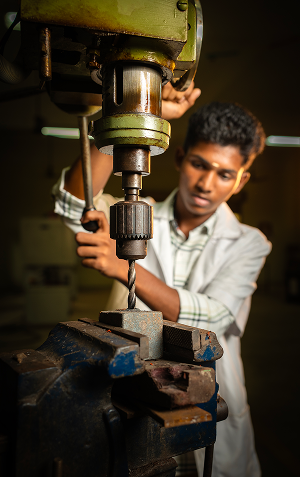
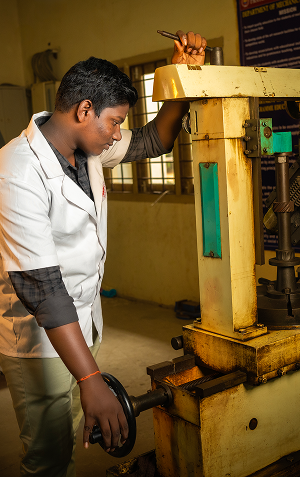
PO,PEO,POS
Programme Outcomes (POs)
- Engineering Knowledge: Apply knowledge of mathematics, natural science, computing, engineering fundamentals and an engineering specialization as specified in WK1 to WK4 respectively to develop to the solution of complex engineering problems.
- Problem Analysis: Identify, formulate, review research literature and analyze complex engineering problems reaching substantiated conclusions with consideration for sustainable development. (WK1 to WK4)
- Design/Development of Solutions: Design creative solutions for complex engineering problems and design/develop systems/components/processes to meet identified needs with consideration for the public health and safety, whole-life cost, net zero carbon, culture, society and environment as required. (WK5)
- Conduct Investigations of Complex Problems: Conduct investigations of complex engineering problems using research-based knowledge including design of experiments, modelling, analysis & interpretation of data to provide valid conclusions. (WK8).
- Engineering Tool Usage: Create, select and apply appropriate techniques, resources and modern engineering & IT tools, including prediction and modelling recognizing their limitations to solve complex engineering problems. (WK2 and WK6)
- The Engineer and The World: Analyze and evaluate societal and environmental aspects while solving complex engineering problems for its impact on sustainability with reference to economy, health, safety, legal framework, culture and environment. (WK1, WK5, and WK7).
- Ethics: Apply ethical principles and commit to professional ethics, human values, diversity and inclusion; adhere to national & international laws. (WK9)
- Individual and Collaborative Team work: Function effectively as an individual, and as a member or leader in diverse/multi-disciplinary teams.
- Communication: Communicate effectively and inclusively within the engineering community and society at large, such as being able to comprehend and write effective reports and design documentation, make effective presentations considering cultural, language, and learning differences
- Project Management and Finance: Apply knowledge and understanding of engineering management principles and economic decision-making and apply these to one’s own work, as a member and leader in a team, and to manage projects and in multidisciplinary environments.
Life-Long Learning: Recognize the need for, and have the preparation and ability for (i) independent and life-long learning (ii) adaptability to new and emerging technologies and (iii) critical thinking in the broadest context of technological change. (WK8).
Programme Educational Objectives (PEOs)
PEO-1: The graduates of Information Technology should be able to apply basic and contemporary science, engineering, experimentation skills to identifying software/hardware problems in the industry, government and academia and be able to develop practical solutions to them.
PEO-2: The graduates of Information Technology Program should be able to use their skills with a strong base to prepare them for flexible career path and to sustain a lifelong career in related areas.
PEO-3: The graduates of Information Technology Program should have an exposure to state of art technologies, adequate software training and opportunities to work as team on multidisciplinary projects with effective communication skills and leadership qualities and adaptive emerging technologies.
PEO- 4: The graduates of Information Technology Program should be able to establish an understanding of professionalism, ethics, public policy and aesthetics that allows them to become good professional Engineers.
Programme Specific Objectives (PSO’s)
PSO1: To understand, evaluate, design and develop optimized solutions by implementing the core concept of Information Technology.
PSO2: To be able to apply software engineering principles that helps to create quality software that supports all business applications and social solutions.
PSO3: To be able to adapt to new and evolving technologies and integrate them in bringing up innovations to the problems that are prevailing.
Course Outcome
Regulations - 2024
Achievements

100% Placement
The Department of Mechanical Engineering achieved 100% placement for the academic year 2024–2025.

Myleshwaran
Myleshwaran from the Department of Mechanical Engineering won the Gold Medal in Bodybuilding at a prestigious event held in Thiruvallur on 29th September 2024.

Vinoth Kumar
Vinoth Kumar of 2010-2014 batch has secured FOURTH RANK in the University Exams. He secured CGPA of 9.25 and he was topper among 510 colleges.

John and Dev Easwar
John and Dev Eswar, first-year Mechanical Engineering students, won 1st Prize at a symposium organized by SRM Eswari Engineering College.

Gold Medal in Bodybuilding
Demonstrating outstanding dedication and athleticism, Myleshwaran secured another Gold Medal in Bodybuilding at Anna University on 23rd December 2024.

Anumareddy Sukesh Reddy
Anumareddy Sukesh Reddy of 2017-2018 batch has secured SIXTEENTH RANK in the University Exams. He secured CGPA of 9.05 and he was topper among 510 colleges.
Your Pathway to Growth
| Academic Year | Percentage of Placed Students | Opted for Higher Studies | Opted for Govt.Jobs | Opted for Entrepreneurship | Details |
|---|---|---|---|---|---|
2024 – 2025 | 100% | – | – | – | |
2023 – 2024 | 95% | – | – | – | |
2022 – 2023 | 83% | 13% | – | 4% | |
2021-2022 | 84% | 10% | – | 6% | |
2020-2021 | 65% | 21% | 8% | 6% | |
2019-2020 | 73% | 3% | 6% | 11% | |
2018 – 2019 | 40% | 5% | 23% | 21% | |
2017 – 2018 | 43% | 4% | 19% | 24% | |
2016 – 2017 | 63% | 7% | 12% | 11% | |
2015 – 2016 | 65% | 5% | 13% | 10% | |
Faculty
Dr.P.RAJA
HOD, Associate Professor
Mr. GOPINATH NARAYANAN
Assistant Professor
Mr. SARMAJI KUMAR P
Assistant Professor
Mr. THIRUMALAI T
Assistant Professor
Mr. MEGANATHAN D
Assistant professor
DR.R.S.KUMAR
Professor & Principal
Dr.PLN.RAMESH
Professor & Dean (A & A)
Dr. G.CHAKRAPANI
Assistant Professor

